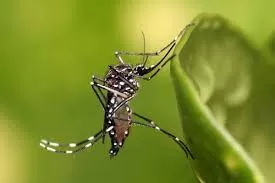Recent research has uncovered concerning implications of dengue infections during pregnancy, shedding light on potential risks to the health of newborns and young children. The study, co-authored by Dr. Livia Menezes from the University of Birmingham and Dr. Martin Foureaux Koppensteiner from the University of Surrey, has been published in the American Economic Journal: Applied Economics.
Dengue fever, a prevalent mosquito-borne disease affecting millions globally, has seen a dramatic rise in cases in recent years, with Brazil experiencing its largest outbreak on record, surpassing 3.5 million cases since January 2024. Against this backdrop, the study examined a vast dataset of dengue fever infections in expectant mothers from Minas Gerais, Brazil, and their subsequent birth outcomes.
The findings revealed that infants born to women infected with dengue during pregnancy exhibited lower birth weights, significantly increasing the risk of newborns being classified as having very and extremely low birth weights by 67% and 133%, respectively. Dr. Livia Menezes emphasized the significance of these findings, noting the potential long-term impacts on socio-economic outcomes and health in adulthood.
Moreover, the study uncovered a 27% increased risk of hospitalization for children whose mothers were infected with dengue during pregnancy, with the highest risk occurring in the second year of life, where there was a staggering 76% increase. Dr. Martin Foureaux Koppensteiner underscored the broader societal implications of these negative birth outcomes, urging increased awareness and improved policy to mitigate the associated costs and health burdens.
The researchers also highlighted the growing threat of climate change expanding the reach of dengue fever beyond tropical and subtropical regions. Aedes mosquitoes, responsible for transmitting dengue, have now been found in over 120 countries, including regions previously unaffected, due to favorable breeding conditions.
Dr. Menezes emphasized the urgency of addressing this issue, advocating for policy changes, vector control measures, updated risk communication, and vaccine adoption to reduce the risk of dengue infections among pregnant women. With the potential for dengue fever to become even more common in previously unaffected countries as the planet warms, prompt action by governments and health organizations is imperative to protect maternal and child health.
As the study brings attention to the intersecting challenges of infectious diseases and climate change, it underscores the importance of proactive measures to safeguard vulnerable populations and ensure healthier outcomes for future generations.











